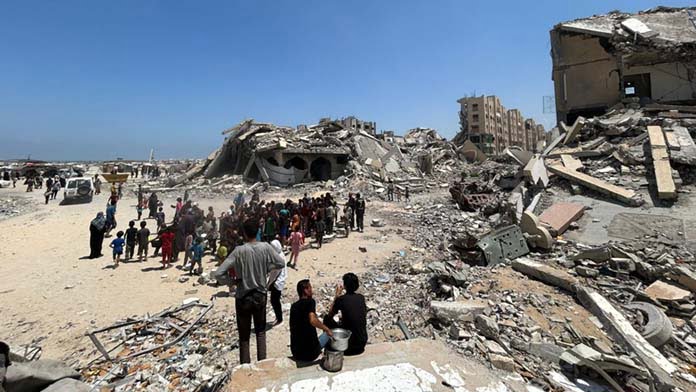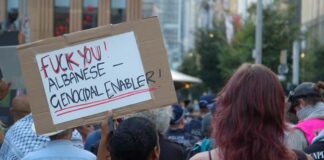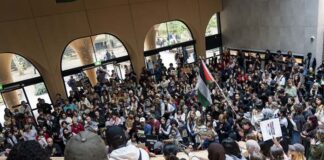After a year of slaughter, Israel’s genocidal war in Gaza shows no sign of stopping.
Instead Israel wants to expand the slaughter, unleashing hell on Lebanon too and threatening a wider Middle East war. Its pager attack and the escalating assassinations of Hezbollah leaders are provocations designed to trigger all out war.
Israel’s Defence Minister has pledged it would “continue until our goal is achieved—the safe return of the residents of the north to their homes”.
Hezbollah has made it clear that a ceasefire in Gaza would defuse the conflict. But US officials now believe there will be no ceasefire before the end of Joe Biden’s term in office in January.
Instead Israeli Prime Minister Benjamin Netanyahu has reneged on terms he appeared to agree to months ago and keeps inventing new obstacles and demands.
The Gaza genocide has seen Israel deliberately target Gaza’s civilian population in one of the most horrific crimes worldwide in decades.
Yet Israel has failed in its declared aim of wiping out Hamas. While Hamas’s forces are degraded they continue to function and its leadership is intact. It retains control of most of the hostages and Israel’s efforts to kill its leader Yahya Sinwar have failed.
Israel admits that it underestimated the scale of its tunnel network under Gaza.
In northern Gaza and Khan Younis, Hamas fighters re-emerged to assert control as soon as Israeli soldiers left. Israel is still bombing areas it claimed to have cleared months ago.
However Hamas has been left isolated.
Israel’s existence as a settler-colonial state alongside at least 6.5 million Palestinians within the Occupied Territories and its own borders means it can never completely end Palestinian resistance.
For its whole history it has used overwhelming armed force to subdue both the Palestinians and the surrounding Arab states.
This can continue as long as the West is prepared to back and arm Israel as a watchdog for their interests.
The last year has shown that the rulers of the US and its allies like Australia have been prepared to tolerate almost any Israeli atrocity.
Israel is totally reliant on imports of fighter jets, bombs and missiles from the West to continue fighting. The US has dispatched more than 50,000 tons of military equipment to Israel since last October, in over 500 airlifts and 100 shipments by sea.
Five months ago, Joe Biden paused a single shipment of enormous 500 pound and 2000 pound bombs, in a warning to Israel not to invade Rafah. When Israel went ahead anyway, the US simply shrugged it shoulders and kept pouring in weapons.
The US needs Israel’s military might to help it dominate the Middle East—and is willing to back genocide to protect its own power.
But the last year has meant ordinary people more and more see Israel as a militarised apartheid state.
In countries like Australia and the US, the movement for Palestine has to keep organising to break our government’s support for Israel.
The Arab ruling classes have also confirmed their collaboration with Israel and US imperialism. The Egyptian government has done nothing as Israel defies previous agreements with it by seizing control of the border with Gaza.
In return the US recently approved $1.3 billion in military aid for Egypt, brushing aside human rights abuses by the authoritarian regime.
Saudi Arabia, Jordan and the United Arab Emirates all aided Israel’s efforts to shoot down Iran’s missile and drone attack in April.
Hopes that military action by Iran and Hezbollah, and the so-called “axis of resistance”, could provide some check on Israel’s brutality have proven unfounded, as Israel inflicts horrific civilian casualties in response to even limited Hezbollah rocket fire.
Heavy repression of protests have held back expressions of solidarity. But the Arab population remains overwhelmingly behind the Palestinians—and disgust with governments that have allowed the genocide to go on is deeper than ever.
The defeat of the 2011 Arab revolutions weighs heavily—yet the scale of the uprisings also showed that the Arab working class can bring down the region’s corrupt regimes.
Earlier this year thousands of textile workers in Mahalla in Egypt went on strike for wage rises to cope with the surging cost of living, linking their struggle to Gaza. Workers across the region hold the power to sweep away the regimes that collaborate with Israel and impose the kind of boycotts and blockades that could begin to strangle the Zionist state.
By James Supple






